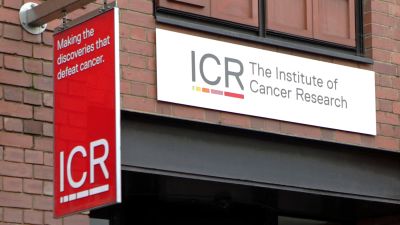Modified cold sore virus could offer a 'promising' new cancer treatment

Trials for a new cancer treatment have shown 'promising results' for those in the advanced stages of the disease.
Patients on the trial were injected with a drug that was a weakened form of the cold sore virus - herpes simplex - which has been modified to kill tumours.
The drug showed signs of effectiveness in a quarter of patients with a range of advanced cancers including skin, oesophageal and head and neck cancer.
Krzysztof Wojkowski, 39, a builder from West London, went from end-of-life care to being cancer free after taking part. Mr Wojkowski was diagnosed with Mucoepidermoid carcinoma, a type of salivary gland cancer, in May 2017.
“I was told there were no options left for me and I was receiving end of life care, it was devastating, so it was incredible to be given the chance to join the trial at The Royal Marsden, it was my final lifeline.
I had injections every two weeks for five weeks which completely eradicated my cancer. I’ve been cancer free for two years now, it’s a true miracle, there is no other word to describe it. I’ve been able to work as a builder again and spend time with my family, there’s nothing I can’t do.”
The trial, which is run by the Institute of Cancer Research and the Royal Marsden NHS Foundation Trust, is only in its first phase but researchers believe the results are promising.
The Study leader Professor Kevin Harrington, Professor of Biological Cancer Therapies at The Institute of Cancer Research, London, and Consultant Oncologist at The Royal Marsden NHS Foundation Trust, said:
“It is rare to see such good response rates in early-stage clinical trials, as their primary aim is to test treatment safety and they involve patients with very advanced cancers for whom current treatments have stopped working.
“Our initial trial findings suggest that a genetically engineered form of the herpes virus could potentially become a new treatment option for some patients with advanced cancers – including those who haven’t responded to other forms of immunotherapy. I am keen to see if we continue to see benefits as we treat increased numbers of patients.”